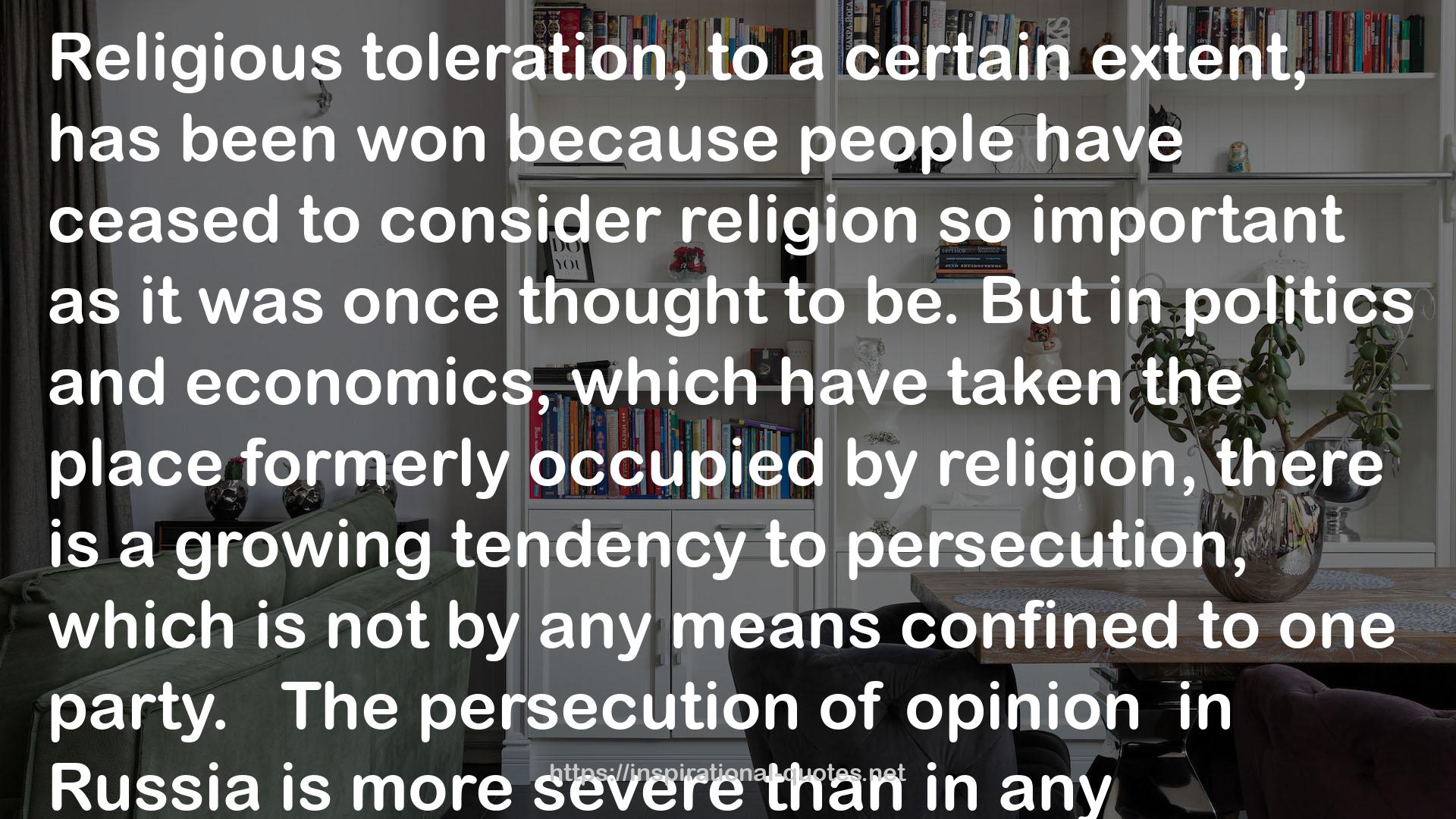" Religious toleration, to a certain extent, has been won
because people have ceased to consider religion so important
as it was once thought to be. But in politics and economics,
which have taken the place formerly occupied by religion,
there is a growing tendency to persecution, which is not by
any means confined to one party.
The persecution of opinion
in Russia is more severe than in any capitalist country. I met
in Petrograd an eminent Russian poet, Alexander Block,
who has since died as the result of privations. The Bolsheviks
allowed him to teach aesthetics, but he complained that they
insisted on his teaching the subject “from a Marxian point
of view.” He had been at a loss to discover how the theory of
rhythmics was connected with Marxism, although, to avoid
starvation, he had done his best to find out..
The examples of America and Russia illustrate the
conclusion to which we seem to be driven — namely, that so
long as men continue to have the present fanatical belief in
the importance of politics free thought on political matters
will be impossible, and there is only too much danger that the
lack of freedom will spread to all other matters, as it has done
in Russia. Only some degree of political skepticism can save
us from this misfortune. "
― Bertrand Russell , Free Thought and Official Propaganda
